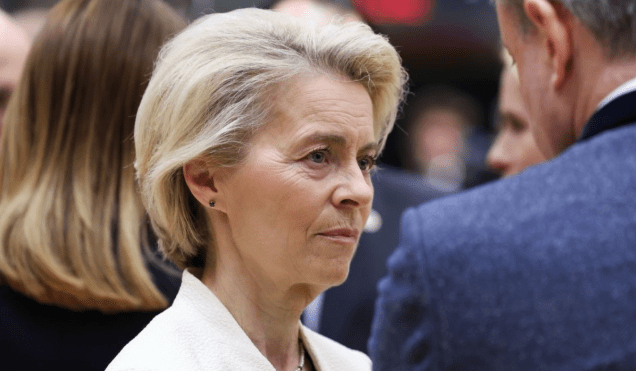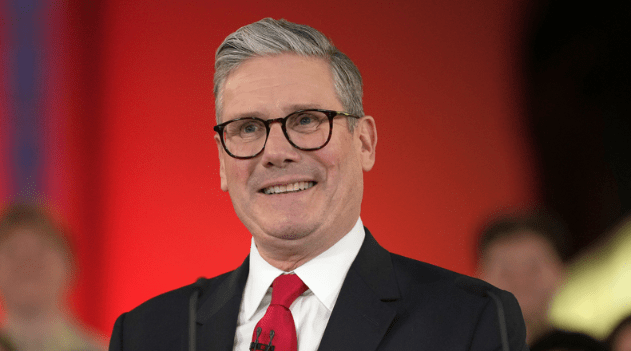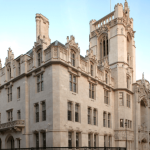In a tense diplomatic sprint, UK and EU officials are locked in last-minute talks to finalise a landmark post-Brexit reset, with negotiations stretching into the early hours ahead of a high-stakes summit in London.
Prime Minister Sir Keir Starmer is set to host European Commission President Ursula von der Leyen and European Council President Antonio Costa on Monday. But with time ticking, both sides are still ironing out crucial details of the agreement.
A senior Downing Street source confirmed the urgency: “Negotiations are going down to the wire and a deal is not yet done, conversations will continue overnight.” Talks are reported to have carried on through Sunday night, with EU ambassadors meeting in Brussels to review potential compromises.
Over the weekend, a breakthrough emerged: British travellers will soon be able to use EU passport queues and e-gates. The move is designed to ease border delays and make travel more convenient for UK citizens heading to the continent.
Another major feature of the reset is the long-anticipated youth mobility deal. This scheme, modelled on similar agreements with Canada and South Korea, will allow young people to live and work across the EU and the UK with greater ease.

However, not everything has gone smoothly. Talks have been held up by contentious issues, notably EU access to UK fishing waters and the scope of the youth mobility scheme. Brussels is pushing for a long-term fisheries agreement, while the UK has so far offered a four-year extension to existing quotas.
Sir Keir’s meeting with EU leaders marks the culmination of months of behind-the-scenes diplomacy. Since entering Downing Street, he has launched a concerted effort to repair and reset UK-EU relations.
At Monday’s press conference, the Prime Minister is expected to unveil several areas of renewed cooperation, including:
- Tighter alignment on food standards
- Reconnection of the UK and EU carbon trading systems
- UK access to a major European defence fund
The defence deal would allow Britain to participate in a €150 billion EU programme aimed at joint procurement of air defence systems, drones, and other military hardware.
Sir Keir has faced pushback from Brexiteers and Conservatives, who accuse him of veering too close to EU institutions. Critics have likened the youth mobility plan to a backdoor return to freedom of movement — something Starmer firmly denies.
He has consistently reiterated that the UK will not rejoin the single market, customs union, or reintroduce full freedom of movement.
Europe Minister Nick Thomas-Symonds reinforced that message on BBC Sunday with Laura Kuenssberg, saying any youth mobility arrangement will be “smart and controlled”.
“It’s about a smart and controlled scheme. As of today, we already have 13 youth mobility schemes with other countries, nobody is remotely suggesting that is freedom of movement with those countries, it absolutely isn’t,” he said.
The Liberal Democrats have called on Labour to go further by seeking re-entry into the customs union. Meanwhile, former armed forces minister Sir Nick Harvey issued a scathing criticism of Brexit’s economic toll.
“Brexit had left Britain with ‘billions less to the treasury, to our public services, and to our flatlining economy,’” said Sir Nick, who now leads the European Movement UK.
“We are five years in – do we want another 10 years of economic havoc, or do we want to take a sensible, responsible path towards undoing the damage that Brexit has done?”
Mr Thomas-Symonds signalled that the UK is willing to align with the EU on specific standards, especially where it benefits British trade.
“We would align with the EU where it is in our national interest to align on common standards to make sure we get far easier trade,” he said.
“That’s what we did in the US deal, where we wouldn’t compromise on our food standards, and it’s exactly that same pragmatic approach for jobs and growth here in this country, we are taking in these negotiations.”
The EU summit comes on the heels of trade wins elsewhere for Sir Keir’s government, including deals with both India and the United States.
Now, all eyes are on London as Britain seeks to forge a new, more stable relationship with Europe—one grounded in cooperation, but carefully balanced against the promises of Brexit.






